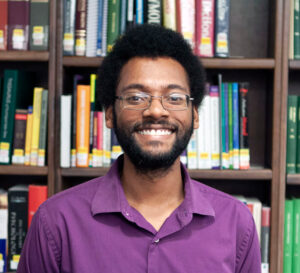During my time spent in graduate school at MSP, I have been exposed to a plethora of therapeutic modalities in my training. I began to find myself drawn to the discipline of ecopsychology, an approach that views the human relationship with the natural world as an essential component to our holistic health. I found this perspective resonated with me because of my work over the years in Detroit with the growing urban agriculture movement. There I experienced this human-nature relationship firsthand working on urban farms. Bearing witness to the healing properties of nutritious food was a one thing, but seeing the mental, spiritual, and psychological health of people (including myself) be positively affected led me to think about the notion of “green psychology.” Little did I know that this theoretical viewpoint had already began to take shape. My training as a practitioner-scholar at MSP gave me the tools and knowledge necessary to begin my own research into the human-nature dyad as a therapy, an ecotherapy.
Throughout my clinical training experiences, I discovered that very few practitioners knew little about ecopsychology and the practice of ecotherapy. So the question became, “how do I integrate this perspective into my clinical praxis?” The practical and ethical considerations around the practice of ecotherapy are complicated when considering it involves being in the context of the outdoors. As a result, I struggled with the idea of how do you practice ecotherapy. It was not until my internship Samaritan Counseling Center that I felt I had the opportunity and knowledge to tackle these perspectives.
Attempting to integrate my theoretical perspective as humanistic/existential, with my emerging view of ecopsychology seemed difficult at first. Over time, I realized that the nature-human dyad has the chance to embody many of the humanistic principles (such as authenticity, genuineness, and empathy) when individuals are able to remain present and open to the environments around us. Through consultation with supervisors and my dissertation chair, I wanted to attempt doing an urban farming ecotherapy group. As the idea became more focused and narrowed down, I decided to do an ecowellness group centered on the use of here-and-now mindfulness practices.
The mixture of mindfulness breathing, visualization, and other meditative practices offered a chance for people to become fully aware and present within a natural setting. As research on the benefits of interacting with nature becomes more prolific, more evidence seems to support that having experiences with nature (both direct and indirect) provides decreases in stress, anxiety, depressive symptoms, and so forth. In creating this group, my aims were to give people coping strategies to alleviate anxiety, stress, and other negative emotions, while also offering people the tools necessary to cultivate their personal relationship with nature. It was my goal that individuals would be empowered to use these tools at home, thereby increasing their environmental awareness and sense of responsibility to protect nature.
The sessions were set up to unfold similar to a process group, with the added caveat of the first portion being centered on mindfulness activities and nature-based experientials. The second portion delved into a group process, where members would process their experiences related to the experientials. I wanted members to really think about how they relate to nature, because how we relate to the natural world around us illuminates our own inter/intrapersonal dynamics. The group setting allowed for an intersectional dialogue between group members and nature. I found the nature setting always offered unique, stimulating experiences, such as when a curious deer began to approach and there was anxiety around this. There was an ability to process this experience in the here and now, an awe-inspiring moment that I was surprised by because there was no scripting it. Nature was alive and engaged in the relational process every session, with no preconceived notions or judgments. A truly humanistic encounter in the outdoors.
 Derrick Sebree Jr, currently a fourth year PsyD student at MSP, is finishing his dissertation research on the possible connections between ethnic identity development and relationship to nature.
Derrick Sebree Jr, currently a fourth year PsyD student at MSP, is finishing his dissertation research on the possible connections between ethnic identity development and relationship to nature.